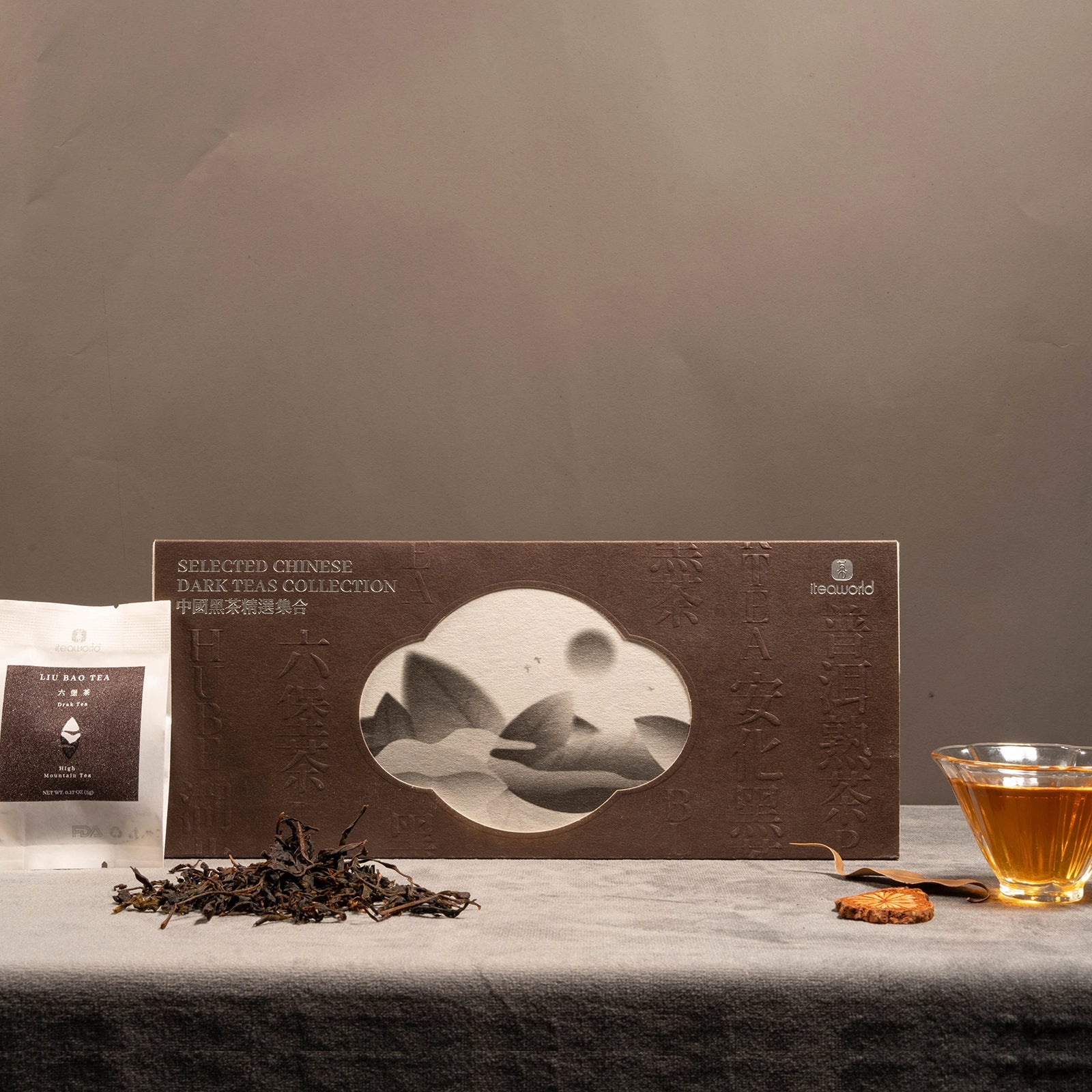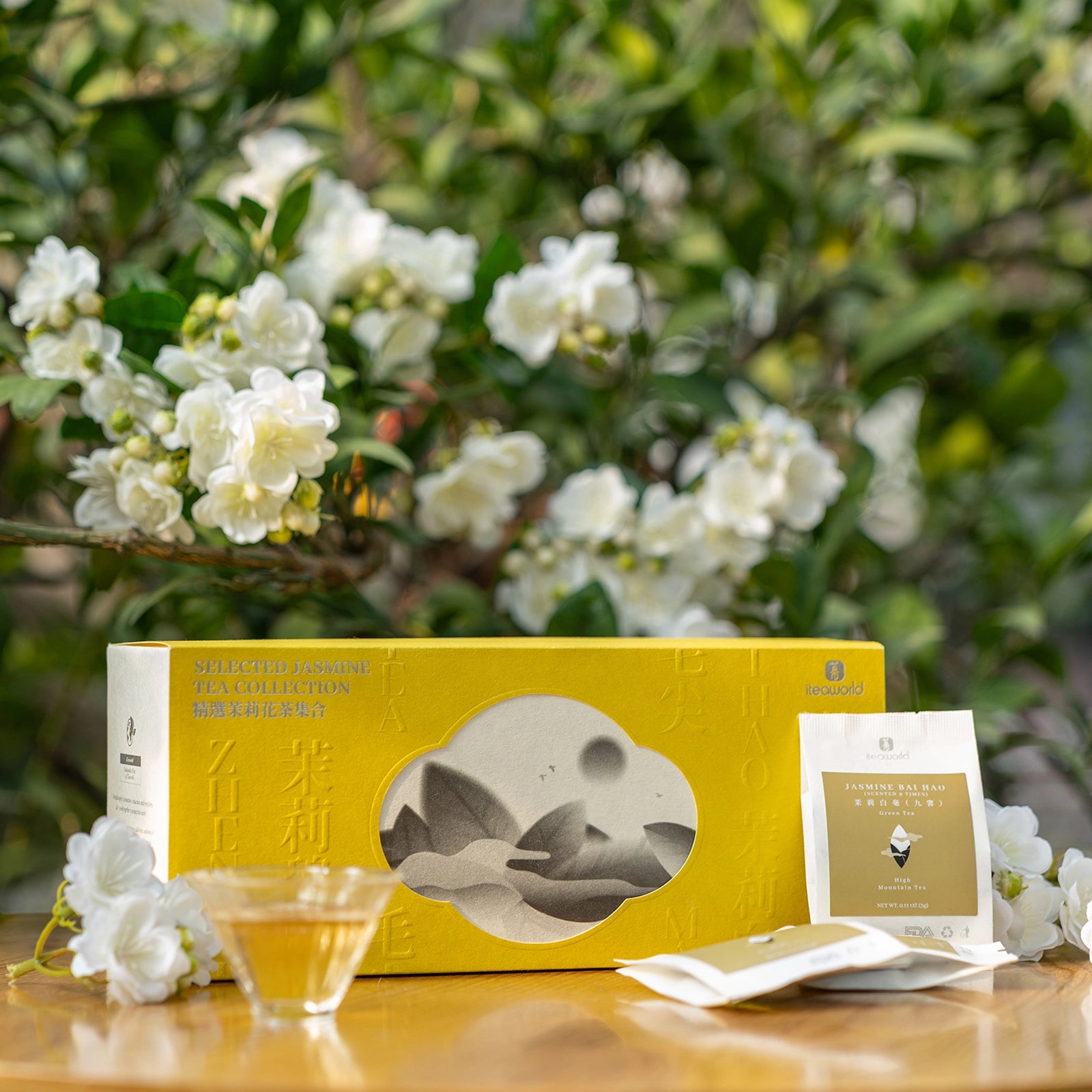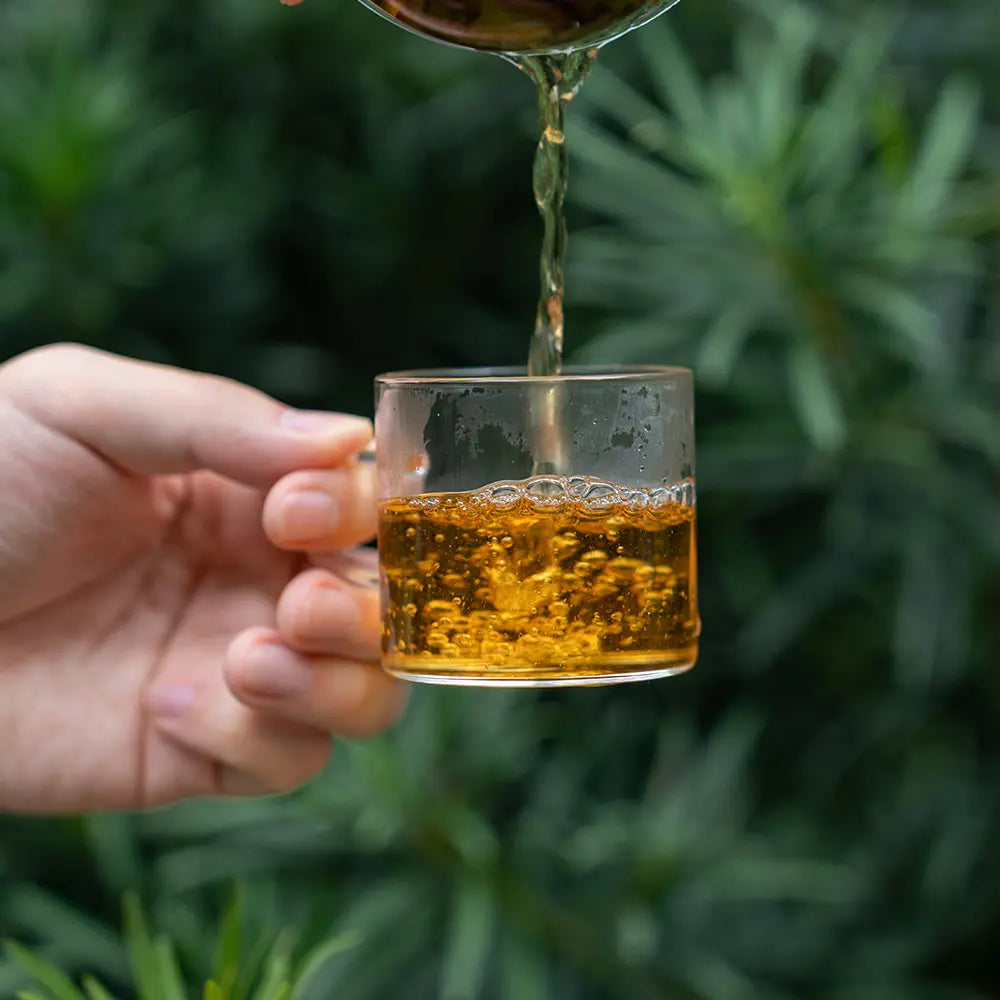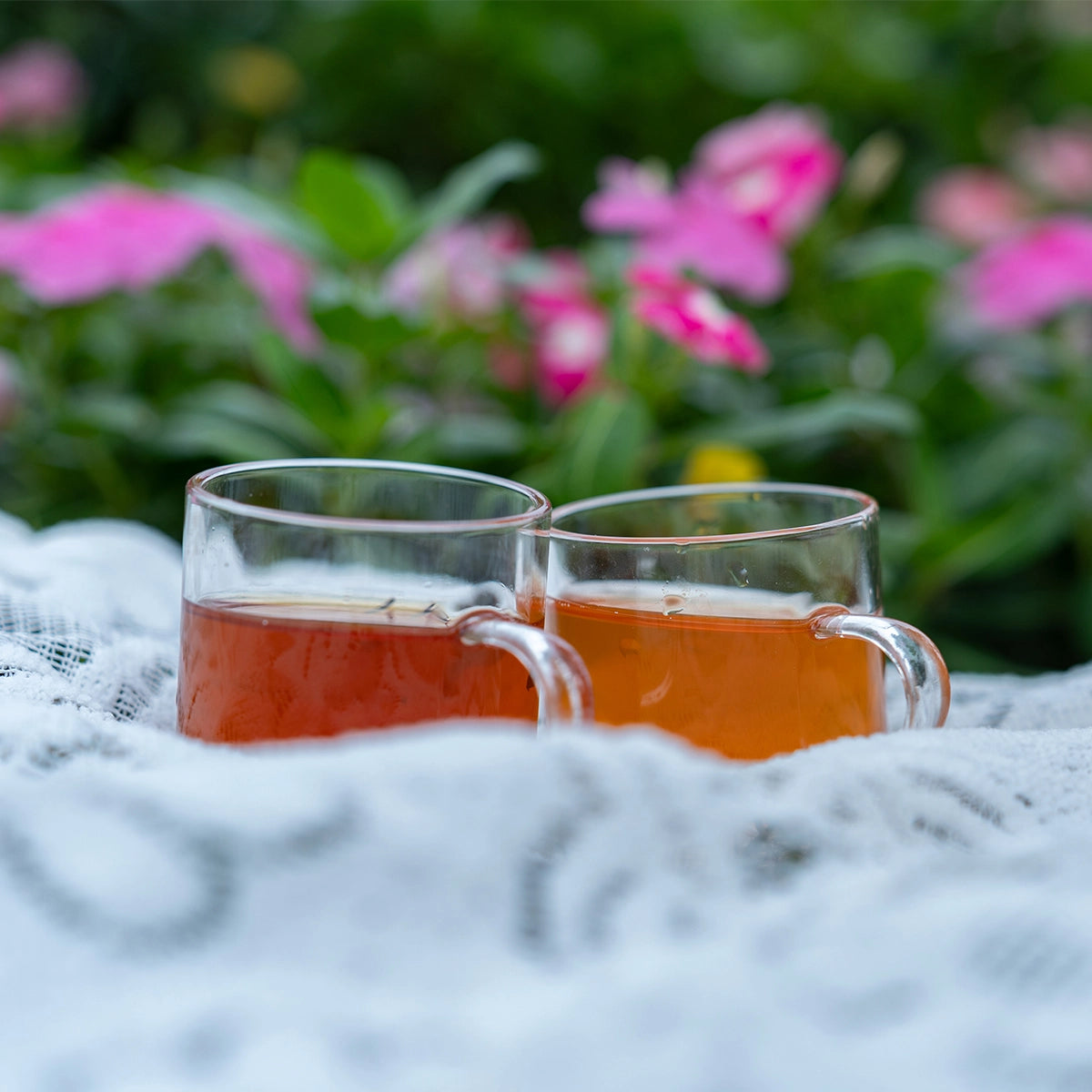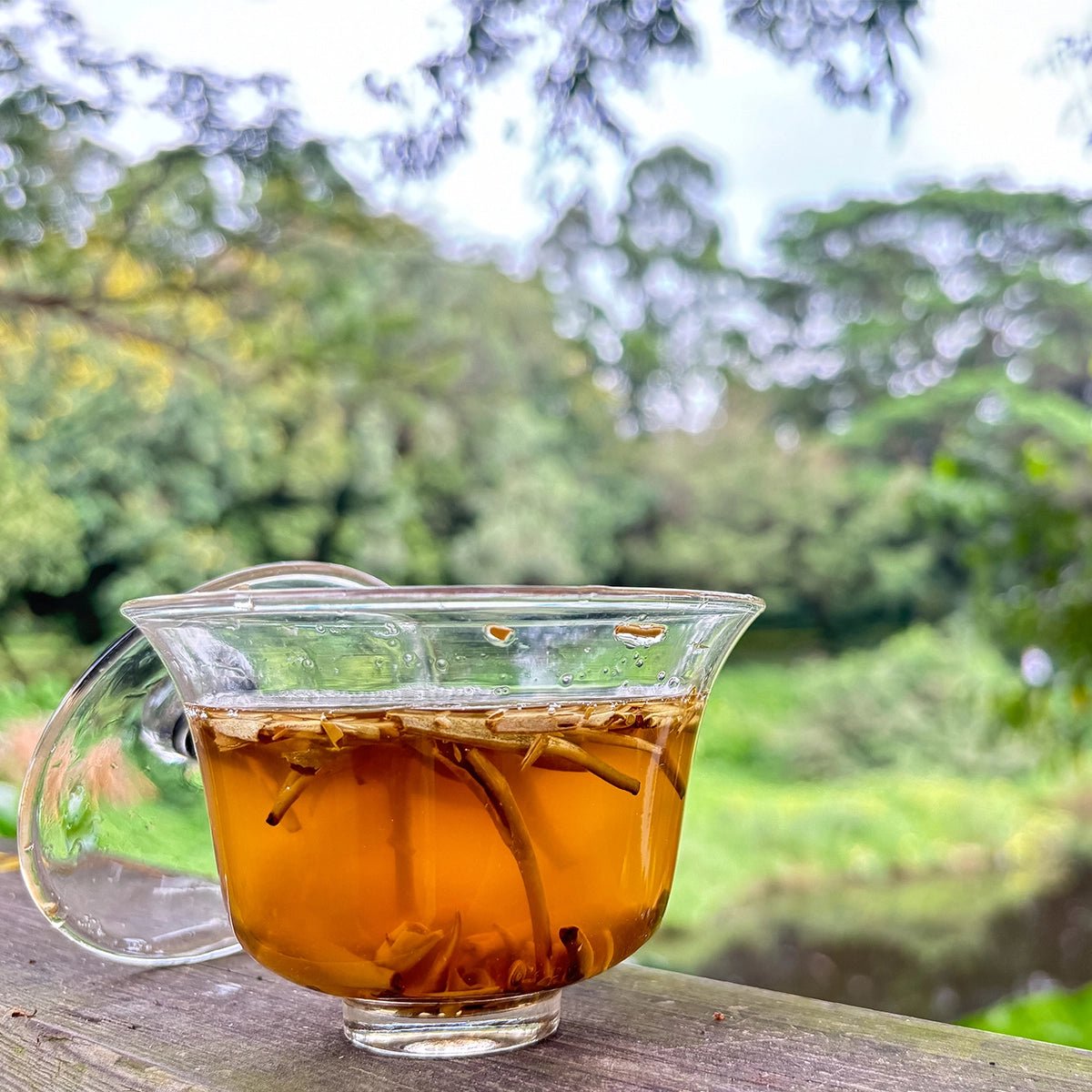





Biluochun Black Tea 25g
Halloween Tea Sale | Enjoy 15%OFF !!!
Enjoy 15% OFF Sidewide
(Discounts apply automatically at checkout)
Product Introduction:
This Biluochun black tea is supervised by Master Shi Yuewen. Shi Yuewen is the founder of Biluochun black tea and Biluochun osmanthus black tea.
It is made from fresh leaves of the Biluochun group variety from Dongting Mountain, crafted by hand.
The tea is made from the tender shoots of spring tea with one bud and one leaf, which makes it sweeter and more delicate in taste compared to other black teas, with a more pronounced aroma.
The origin is from Dongshan Town, Wuzhong District, Suzhou City, which is the core production area of Biluochun green tea.
Due to the tenderness of the raw materials, it almost lacks the traditional sourness and astringency of black tea.
The shelf life is not 24 months like other black teas; it is recommended to consume this Biluochun black tea within 12 months.
This black tea is quite delicate, so please brew it with water at a temperature of 75-80 degrees Celsius. It's recommended to use a white porcelain Gaiwan for brewing.
Use the top infusion method by adding the tea leaves to the cup after the water has been poured in (that is, water first, then tea).
After opening, it can be stored in the refrigerator at below 5 degrees Celsius, make sure to seal it well to avoid any odors.
Introduction to Biluochun Black Tea Founder Shi Yuewen:
Born into a family known as the "Tea King," his ancestors were called "Old Biluochun" for their tribute of Biluochun tea to the imperial court, and his grandmother, Zhou Ruijuan, personally stir-fried tea for Zhu De. Building on the traditional Biluochun tea-making skills, Shi Yuewen created a new method for making Biluochun black tea and osmanthus-flavored Biluochun black tea. In 2017, he was selected as a representative inheritor of the fifth batch of national intangible cultural heritage projects. The tea he personally makes is not available for purchase; it requires advance booking and is extremely expensive.
Tea Tasting Notes:
Comparative tasting of Biluochun Black Tea and Biluochun Osmanthus Black Tea
Today, I tried two black teas for the first time: Biluochun Black Tea and Biluochun Osmanthus Black Tea. Both are of similar quality, but one has been infused with osmanthus flowers, while the other hasn’t.
Biluochun Black Tea is made from the tender buds of the Biluochun variety, developed using the processing techniques of Zhengshan Xiaozhong black tea. You can still find it in its origin place, Suzhou, though it’s not widely known elsewhere. Both teas come from the core production area of Suzhou Biluochun and are handcrafted.
I used 2.5 grams of tea with 100 ml of water at around 90-95°C (boiling for a minute before brewing). Since this black tea has a high tenderness, I avoided using boiling water. I opted for a porcelain gaiwan. I've noticed that brewing tea in a gaiwan versus a mug often yields a significant taste difference. I think it's because the gaiwan allows for better control of the water amount and timing when pouring.
Starting with the Biluochun Osmanthus Black Tea, the dry leaves don’t show much osmanthus, but it has a distinct osmanthus aroma. When brewed, the sweetness of this tea feels delicate due to its tenderness. If I hadn’t compared it with the non-osmanthus version, I wouldn’t have noticed anything particularly remarkable. There’s a light osmanthus scent mingled with a hint of fresh longan, creating a high level of integration and balance, enhancing the sweetness that the original Biluochun Black Tea lacks. The aroma is elegant rather than overpowering, making it suitable for slow sipping and ideal for gaiwan brewing, though it might not satisfy those looking for a bolder flavor.
Now for the Biluochun Black Tea, to be honest, it seems less impressive in comparison. If you’ve had a higher-grade non-smoky Zhengshan Xiaozhong, the flavors are quite similar. However, its advantage lies in its high tenderness and sweetness. I believe this Biluochun Black Tea is excellent, but when compared to the osmanthus version, it lacks that aromatic complexity, making it seem less remarkable. I’m curious why aromatic notes can enhance the dimensionality of tea’s flavor; it’s hard to describe clearly.




